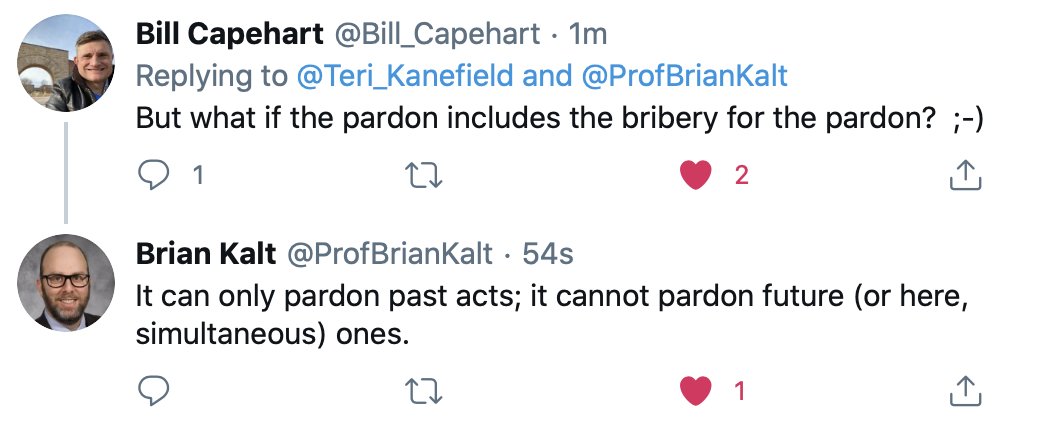The pardon power is absolute.
But if the pardon is part of a bribe (the pardon in exchange for silence) there exists a separate crime not covered by the pardon.
h/t @ProfBrianKalt
But if the pardon is part of a bribe (the pardon in exchange for silence) there exists a separate crime not covered by the pardon.
h/t @ProfBrianKalt
People are asking about how this can be proven.
Prosecutors use circumstantial evidence all the time to prove crimes. If a confession was necessary, very few people would be convicted. https://twitter.com/lauriemhall/status/1342154150100881408
Prosecutors use circumstantial evidence all the time to prove crimes. If a confession was necessary, very few people would be convicted. https://twitter.com/lauriemhall/status/1342154150100881408
Adding this question and answer by @ProfBrianKalt to the thread.
(I did a screenshot so I could include both the question and the answer.)
(I did a screenshot so I could include both the question and the answer.)
There is, actually, an exception given in the Constitution: Except in cases of impeachment (which scholars take to mean that an impeachment cannot be reversed.
Also, scholars are [fairly] certain that self-pardon will not stand.
Also, scholars are [fairly] certain that self-pardon will not stand.

 Read on Twitter
Read on Twitter


